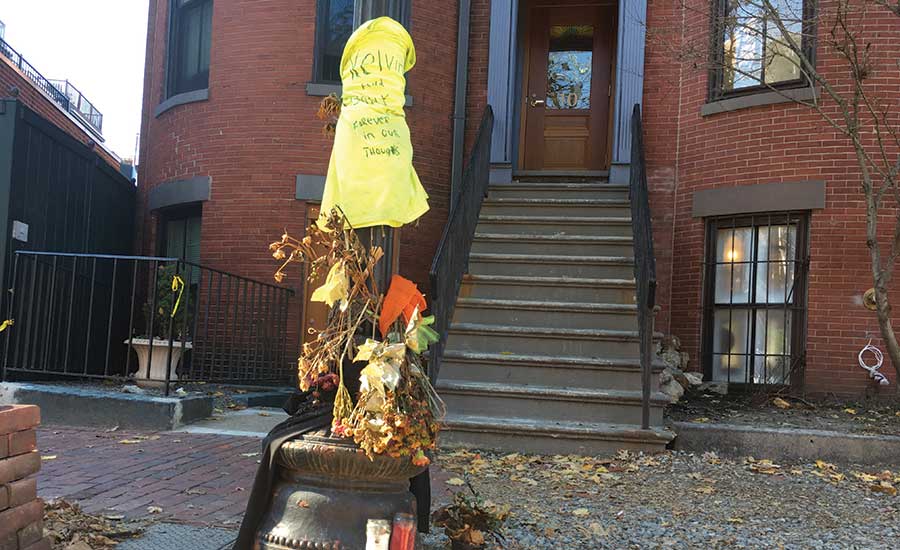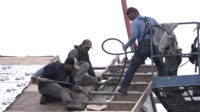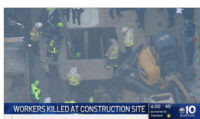Manslaughter charges against a Boston drain company are reinvigorating efforts to increase penalties for firms convicted of manslaughter in Massachusetts. A bill to raise the fine to $250,000 from $1,000 was re-filed in January, after Robert Higgins and Kelvin Mattocks died in a trench collapse on Oct. 21, 2016. Last month, Atlantic Drain Services Inc. and its owner, Kevin Otto, were each arraigned on two counts of manslaughter, among other charges.
Massachusetts’ $1,000 penalty was adopted 198 years ago. Katie Tracy, an analyst for the Center for Progressive Reform, is collecting data on corporate manslaughter and reckless homicide penalties across the country. She believes Massachusetts has one of the lowest penalties in the nation. Noting that Oregon and Washington have fines of up to $50,000, Tracy says, “I can’t imagine another state having a penalty lower than $1,000 for manslaughter.” In New York, where Harco Construction recently was found guilty of a fatal trench collapse, the penalty is $10,000, Tracy said.
Massachusetts has tried to raise its corporate manslaughter fines ever since settling with New York-based Powers Fasteners in a case involving a motorist who, in 2006, was killed in a ceiling-panel collapse in a “Big Dig” tunnel. The state House and Senate failed to agree on a final version of a bill in 2013 and another bill was sent to “study” in 2015.
While advocates for increased state manslaughter fines argue that they deter employers from committing violations, Eric Conn says reforming U.S. Occupational Safety and Health Administration penalties is a better way to check bad safety cultures. A Washington, D.C.-based lawyer who has defended companies against OSHA allegations, Conn says manslaughter charges are not designed to regulate workplace safety and OSHA is better equipped to investigate jobsite deaths.
“Adding 50 criminal enforcement models state by state has the opportunity for inconsistent application and non-experts trying to enforce legal requirements that are outside their expertise,” Conn says.
While Conn argues that jobsite manslaughter cases can be prosecuted at the federal level under the federal Occupational Safety and Health Act, Tracy, speaking of the 4,500 workers killed on the job each year, noted, “OSHA has referred no more than 14 cases annually for prosecution over the past decade.” To be prosecuted criminally under the act, employers must be cited for a “willful violation” that caused a worker’s death. The maximum penalty for organizations is $500,000, while the maximum penalty for an individual is $250,000 and up to six months’ jail time. In Massachusetts, however, manslaughter can be a felony charge. Otto faces up to 20 years in prison and a $1,000 fine.
The district attorney alleges that Otto did not use cave-in protection, such as metal trench boxes or tongue-and-groove wooden planks. Since 2007, Atlantic Drain has been cited twice by OSHA for failing to shore a trench. Conn said willfulness can be “easier to show” in trenching incidents in which there was no trench box used and “no way your employee used proper protection.” Atlantic Drain’s lawyer declined to comment, and Otto’s attorney could not be reached.
According to the federal Bureau of Labor Statistics, 94 excavation or trenching cave-in deaths were recorded between 2011 and 2015. An OSHA press release states that there were another 23 trench-related deaths in the first 11 months of 2016.





